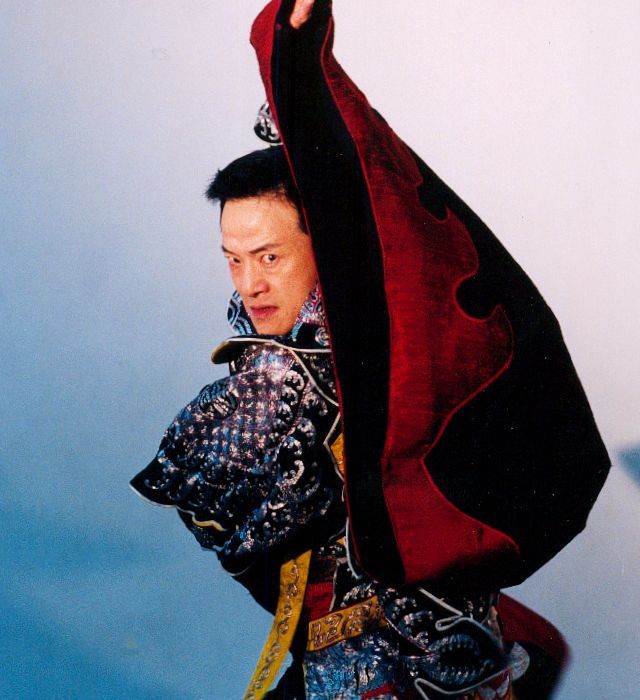Lonely, stubborn, and deserted, old Lear is both tragic and pathetic. Shakespeare presents a loser who, once powerful enough to command the elements and prevail in battlefields, falls deeply because of his undutiful daughters. He screams at heaven and cries to the earth. He beats his own bosom in pain. To his protest heaven is indifferent and irresponsive. Lear is, in the end, a laughingstock.
I thought it would be opportune for me to play Lear in my seventies. Yet, as I had been accurately warned, I started to feel strained after I turned fifty. I will be seventy in three years. It is funny that we need others to tell us our own inadequacy. Fifty-five years have elapsed since my debut on stage. From now on, each year I will make my last performances of a title, starting with King Lear. My declining strength compels me to make this decision. My dear friends, I beg your indulgence!
It took me fourteen months to adapt King Lear, but the play seems to have lived within me for decades. In my youth, I was embittered by a forced separation from my mother and exasperated by the helpless situation at the boarding school. Only after graduation did I realize that the route I took was met with a dead end, with no appreciating audience. At this time, Cloud Gate Dance Theater offered an alternative. Even so, inspired by Master Zhou Zhengrong and drawn by a nostalgia for traditional theatre, a desire to further explore it, I resolved to undertake formal discipleship and the responsibility to carry the baton forward. It was a young audience sharing the same interest who rescued me from foreseeable destitution and disgrace.
I realized that performing art is my passion and calling. With friends’ help, I boldly started my own troupe. We worked for about three years before the premiere of The Kingdom of Desire in 1986. My wife, who is passionate about performing art and an artist herself, gave me the courage to venture forward. With pride we returned from the Avignon Festival in France and were ready for more productions. It turned out—I wish I could omit this part—that I was banned in my own country. My plan to adapt Waiting for Godot was rejected and ridiculed, and the whole experience was simply suffocating. In the play, Vladimir questions the boy: “Are you a native of these parts? Do you belong to these parts?” I resonated with it. So, in 1998, I held a press conference in indignation: “I quit!” Thus, Fate again presented me with a trial. Where could I go? What could I do?
I was forty-five years old and at my peak. I was full of energy, yet confused and lost. However, Providence was not without pity. Ariane Mnouchkine, a world-renowned theatre artist, landed me a hand and encouraged me to return to stage. Amidst this mixture of glory and shame, I resolved to confront my angst and turned this crisis into an opportunity. I created the solo King Lear straightaway to vent my anger from a previous life. With my adaptation, I was not concerned with Shakespeare’s authority or authenticity.
Instead, my adaptation is a vehicle for me to express my rage and sorrow, to whip up my enthusiasm, and to purge my melancholy. On Lear’s dead body, I resurrected. I scrambled and deconstructed Shakespeare’s text to find true meanings until I drowned myself in tears. I braced for the pain and laid down my ego. I saw my true self, and hated it. Remorse brought self-awareness and self-understanding. Indeed, this solo piece is about self-reliance, self-strengthening, self-inspiring, and self-confidence. Once again, I experienced the power and essence of theatre.
If an actor is willing to devote his or her life to experience and learn, to achieve whatever his or her goal is, the performance will succeed and move others! This is the everlasting power and the truth about theatre.
My heartfelt thanks to all those who have supported me and the CLT over the past thirty-four years!

